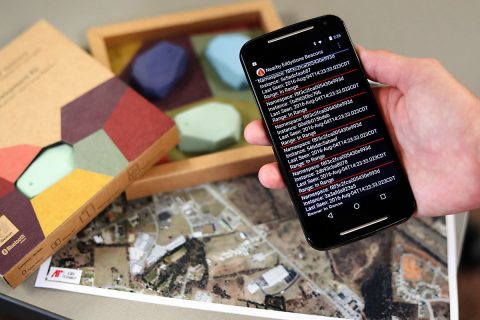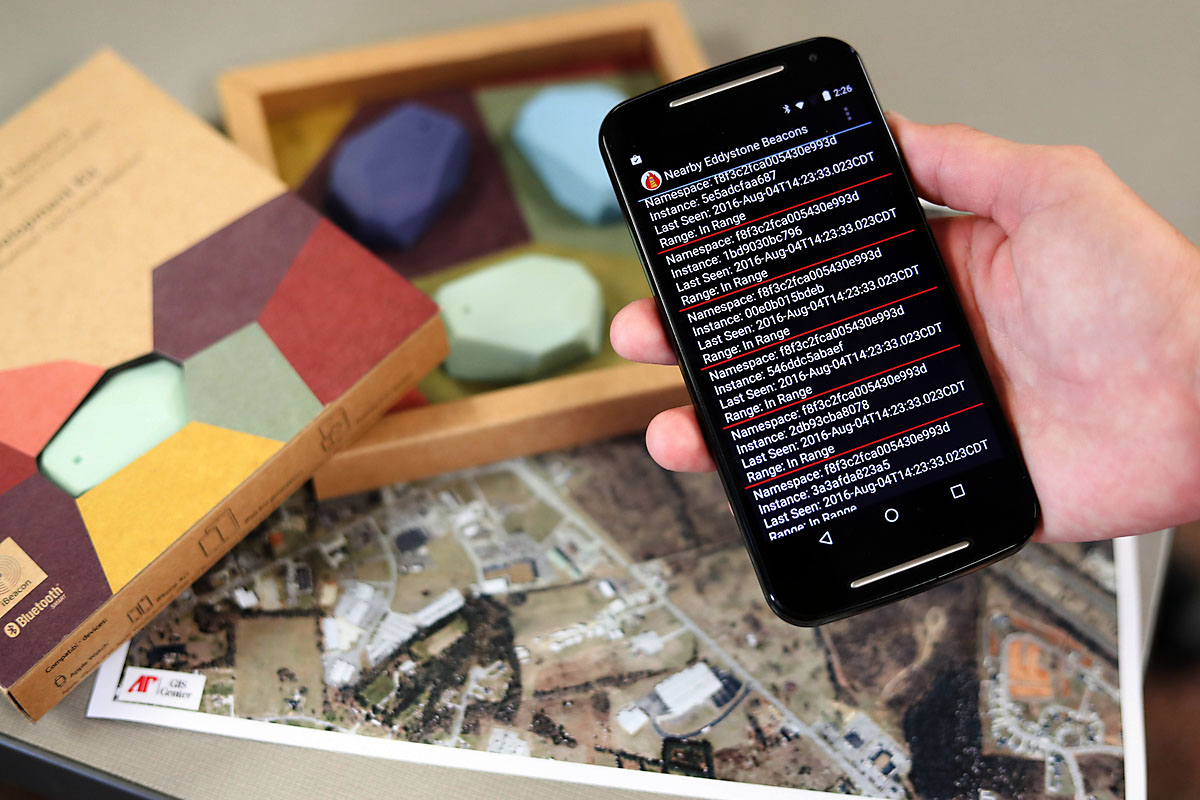 Clarksville, TN – For volunteer fire departments, the risks that come with the job can often be different than those of full-time firefighting units in major cities. In many small, rural communities, volunteer firefighters battle the same blazes as their full-time counterparts, often meet at the scene rather than all coming together from a central fire station.
Clarksville, TN – For volunteer fire departments, the risks that come with the job can often be different than those of full-time firefighting units in major cities. In many small, rural communities, volunteer firefighters battle the same blazes as their full-time counterparts, often meet at the scene rather than all coming together from a central fire station.
Because of the independent nature of volunteer units, it can be difficult for unit commanders to identify who is available to fight the blaze when they arrive on site.

“What the ‘Internet of Things’ basically means is that it is technology in everyday items that uses the internet to communicate,” Mike Wilson, GIS Center director, said. “So think of something like a thermostat that you can control from your phone, or a door lock that works with the Bluetooth on your phone to unlock itself. There are a lot of devices now that you can interact with using your phone or computer.”
“We do a lot of work with first responders, and last year, we were talking to one of an EMA director who was discussing emergency site control, and mentioned he’d love to find a solution to better assist volunteer firefighters,” Wilson said. “I kept that conversation in the back of my head, and when I saw this Google offer, the idea of using Bluetooth beacons came up.”
Bluetooth beacons are sort of a 21st century version of a radio beacon or even a lighthouse. By constantly emitting a signal, that signal is picked up by a device designed to detect its presence – in many cases, a smartphone – which individuals or businesses can use to determine location, track customers or even trigger location-based actions on the device.
“Imagine you go to a Tennessee Titans game and you have their app on your phone,” Wilson said. “When you walk by the team store, they have a beacon set up that detects your phone and all of a sudden, you have an alert that pops up saying jerseys are 20 percent off. That’s one use of this sort of technology.”
Working alongside APSU students Mason Cordell, Catherine James, Daniel Rumfeld, Jordan Taylor and Sam Gray, Wilson and his team began exploring uses for beacon technology that went beyond advertising. With the goal of helping volunteer firefighters in mind, the team settled on using the cost-effective technology to identify first responders are active fires.
“We got to thinking we could take these beacons and maybe put them in a firefighter’s coat,” Wilson said. “Some beacons have a range of up to 200 meters and they all have a unique ID to them, so if I had this in every firefighter’s coat and I knew what each unique ID was and I had a detector, I could know exactly who is on site at that time.”
Bluetooth beacons typically cost under $10.00 and can last up to two years before being replaced, meaning the technology is not out of the reach of even the smallest of departments. To utilize the beacons, APSU students have developed technology that can run on laptops currently installed in fire trucks, as well as apps for Android smartphones, that allow unit commanders to quickly access up-to-the-moment information on available responders.
“If I know that Mike is assigned to Beacon A, and I know that Beacon A is present on the site, then I know that Mike is there and that makes my job easier as a commander,” Wilson said. “One of the things we try to do at the GIS Center is explore technology solutions to serve the communities with which we work.”
For more information on this or any other projects, contact the APSU GIS Center at 931.221.7500 or wilsonw@apsu.edu.



